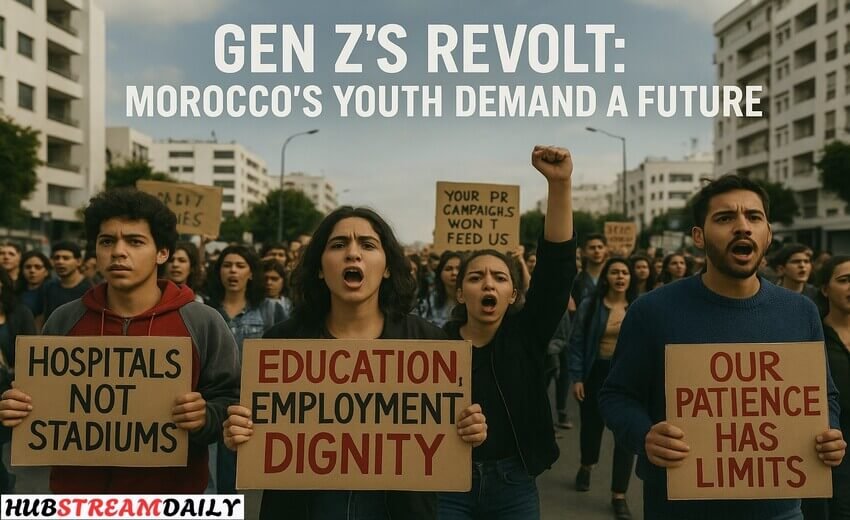
Even today, over 200 years after Jane Austen first presented her readers the world of drawing room, witty dialogues, and romantic entanglements of Regency England, her world still seizes the curiosity of people all over the world. Whether it be best-selling books or TV series or popular streaming series like Bridgeton, the Regency romance genre is still not only alive but also thriving making it a cultural phenomenon that is spreading and doesn’t seem to end.
But what accounts for such a strong grip on fascination? Why in a day and age of technology, virtual dating, and hustle and bustle of life, are readers and viewers still hooked to the likes of candlelit ballrooms, empire-waist dresses and slow-burning love stories of Austen’s time?
The Timeless Appeal of Jane Austen’s World
Jane Austen (1775–1817) was unaware of the vast impact she had on the world. Her six novels that she managed to finish – Pride and Prejudice, Sense and Sensibility, Mansfield Park, Emma, Northanger Abbey, and Persuasion – have become the pillars of English literature. Besides, critics adore each part for its acerbic social commentary, the subtle use of humor, and, commendable even with all its restraint, a depiction of the tricky interplay between class, status, and love.
The period of Regency (1811–1820), where everything was done with a lot of style, but in the middle of great social upheaval and changing morals, is just the right setting for the author to delve into the fundamental human themes: the seeking of love, the yearning for safety, and the struggle between societal norms and personal satisfaction.
The characters of Jane Austen are less than attractive if not for their human faults for they possess wit, intelligence, and a kind of honesty. They are not damsels in distress but instead, heroines who turn the tables on the authors and readers alike. One of Elizabeth Bennet traits like her witty repartee and not settling for marriage that lacks love is even now more applicable than ever for readers as she still has to face questions of independence, self-worth, and true partnership in the fast-paced world of today.
A World of Escapism
Regency romance is, without doubt, one of the most popular genres, which success is largely due to the charm of its escapism. Right in the middle of our digital, fast paced lives, the works of Austen provide not only a break from reality but also a new world filled with calm views, candle-lit salons and even the more subtle characters’ rather than today’s faster and lazier manners of communication. People become members of a social world where the newly written letter is still more important than the text message and love doesn’t come with swipes but with glances, talks and misconstructions.
Originally this escapism fueled by nostalgia is the reason why current adaptations still thrive. In fact, the first day Bridgeton created by Shonda Rhimes and aired on Netflix in 2020, it got a very popular immediately, attracting millions of viewers who were asking for It was a mixture of traditional and modern elements that allowed comparative success for Bridgeton, basically, it could be said, it was a matter of…
Reinventing Romance for Every Era
Moreover, the other aspect pertinent to the survival of Regency romance is just its capability to adapt. The Austen universe is being updated to deal with modern values and themes by the writers and the filmmakers, alike.
- Modern Retellings: The books like Festa by Ibi Zoboi and Eligible by Curtis Steinfeld are centered around the contemporary-era versions of Austen’s characters and plots, which they demonstrate to be not bound to times.
- Diverse Representations: While the characters were mostly the aristocracy in Austen’s work, today’s writers are expanding the world of the gentry period to include people of different races, sexualities and socio-economic backgrounds, and thus making the genre more accessible to all.
- Cross-Cultural Appeal: Austen’s themes of love, class, and self-exploration have been able to go beyond cultural borders. The film Bride and Prejudice, which is an adaptation of the novel and takes place in India, is an example of how her stories still have a universal appeal.
The Psychology of Slow-Burn Love
Regency romance provides a delightful change from the modern world that is dominated by instant gratification. The slow-burn model, where glances, misunderstandings, and carefully chosen words are of great importance, gives a riddled feeling of anticipation. The readers become engaged not only in the outcome of the love union but also in the way the characters find their path through social norms to be able to get together.
This is closely related to a human psychological craving that is reflected in the story – a need for depth, patience, and sincere connection in a world that is full of superficial relationships. The regency romance is a reminder that the real intimacy is not achieved necessarily through quickness but rather through time, talk, and emotional letting down.
Cultural Symbols and Lasting Legacy
Regency romance is not only a literary genre, but it is also a cultural symbol. Book clubs, fan conventions, costume balls, and online communities continually keep the tradition of Austen going. Jane Austen societies located all over the globe are the source of her spirit, with thousands of members who get involved in the discussions, events, and reenactments.
In addition, the popularity of the Regency period in movies and TV shows remains, as they are visually the embodiment of the elegance, the drama, and the love story. The romantic horse-drawn carriages, the beautiful mansions, and the picturesque gardens have become the most famous and the most easily recognizable symbols of romance.
Why It Still Matters Today
One of the main reasons why Regency romance does not lose its relevance in the 21st century, apart from the nostalgia factor, is its inherent relevance. The main character’s scenarios in Austen’s works are still pretty familiar to a great number of people, and these are the main issues raised in the 21st century world:
- Class and Inequality: The main narrative is enriched with the theme of wealth and power, presented by authors like Austen, and today we still see this kind of problem in modern societies which are struggling to divide economically.
- Women’s Independence: SOCALLED Theoretically, Austen’s heroines in the name of women’s independence struggle and fight the overwhelming societal pressure of norms and the challenge of individuality as a topic which still is discussed in the gender role area at present time.
- True Love vs. Convenience: The conflict between the two options, to marry for love or to marry for convenience did not disappear and still challenges people all over the world.
By juxtaposing a romantic, idealized setting with these struggles, the Regency romance offers a kind of both reflection and consolation.
The Future of Regency Romance
In no way is the genre going to fade, but it is going to evolve. As a result of the new generations’ exposure of Austen’s works through the means of social media, TikTok book reviews, YouTube adaptations, and streaming series, the Regency era is moving into a digitally enhanced age of the 21st century. In spite of this, authors stay true to their creative impulses by incorporating fantasy, mystery, or even sci-fi elements into the period backdrop, so the genre can remain new and creative at the same time.
The fact that these new audiences keep coming suggests that Mr. Darcy will still be flirting with Elizabeth Bennet two centuries from now. As we know, whilst associating this remark with herself, Austen once said: “The person, be it gentleman or lady, who has not pleasure in a good novel, must be intolerably stupid.”
At Last, Even today, 200 years after Jane Austen, the popularity of the Regency romance is another confirmation of the power that literature has to overcome time. It is a continuously adapting and modernizing version of itself, while still serving as an outlet, inspiration, and mirror. It is not just the witty banter of Elizabeth Bennet and Mr. Darcy which keeps the audience coming, but also the really fast-newfangled discoveries of the genre in the age of Netflix and YouTube. The core of the Regency romance is, thus, still alive and well, just as strong as before, if not even more so.
Jane Austen’s legacy will live on as long as readers crave cleverness, emotion, and narratives that combine insightful critique of society with cosy love affairs, and consequently, Regency romance will keep its place as the most popular one.





